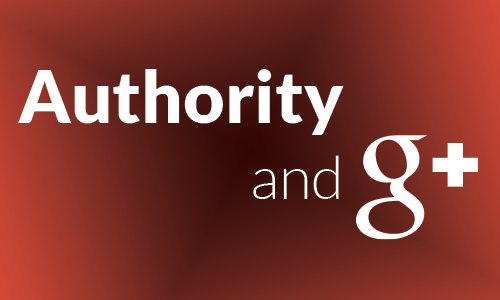Two measures of authority and the case for Google+

UDPATE: Google nixed authorship functionality in late August 2014. Only time will tell if they reincarnate authorship in a new form.
You’ve probably never heard of Eugene Garfield. He is the founder of Institute for Scientific Information (ISI), which tracks citations in academic journals. The company measures the prominence of research articles — and their authors — based on the number of citations in subsequent articles.
In 1955, Garfield and his research partner Irving Sheer quantified authority by studying articles published by Nobel Prize winners. Their landmark research demonstrated that winners:
- Published five times the number of papers
- Were cited 30 to 50 times more
Is there anything more authoritative than winning a Nobel Prize?
ISI’s business model is based on this type of citation analysis and allowed researchers to rank authors and the content they produced.
Content Ranking
In 1999, Sergey Brin and Larry Page authored a paper applying the concepts of citation analysis to what was then know as the World Wide Web. The pair would go on to found Google and change marketing forever.
Google’s foundation is citation analysis on a massive scale. From the beginning, Google has measured links among web pages the same way that ISI measure citations in scientific journals. In general, links from quality website improve the odds of a particular page ranking highly in search engines.
It’s hard to argue that Google has perfected the science of ranking content, which now includes far more than links.
Author Ranking
But what about authors? Remember the first half of Garfield’s finding: Nobel Prize winner publish five times more.
Many believe the company has been tracking author for years through Author Rank. The impact on search results is debatable.
Enter Google+ authorship.
While Google+ is primarily a social network, Google+ authorship adds a unique element that completes the authority cycle.
Assuming you publish good content, you can now demonstrate to Google your volume of work both on their own websites and other websites. All it takes is some simple markup with each of your articles.
Using Google+ authorship is a win-win. You have an opportunity to claim your articles across the Internet, while Google has the means to measure and compares different authors’ bodies of work.
Only the employees of Google know exactly how Google+ authorship will be used. But the pattern makes sense. Ranking content through citations (e.g. links) was the first major step. As part of its goal to deliver the best search results possible, why would Google not also rank authors based on the credibility and volume of their work across the Internet?
Most of us do not have scientific journals and Nobel Prizes to demonstrate our authority. And most of us aren’t going to publish book. For us, our path to authority will come online, and Google+ has potential to play a large role.
Let me know your thoughts.
Resources:
The Definitive Guide To Google Authorship Markup by Rick Dejarnette
Filed Under: Marketing







